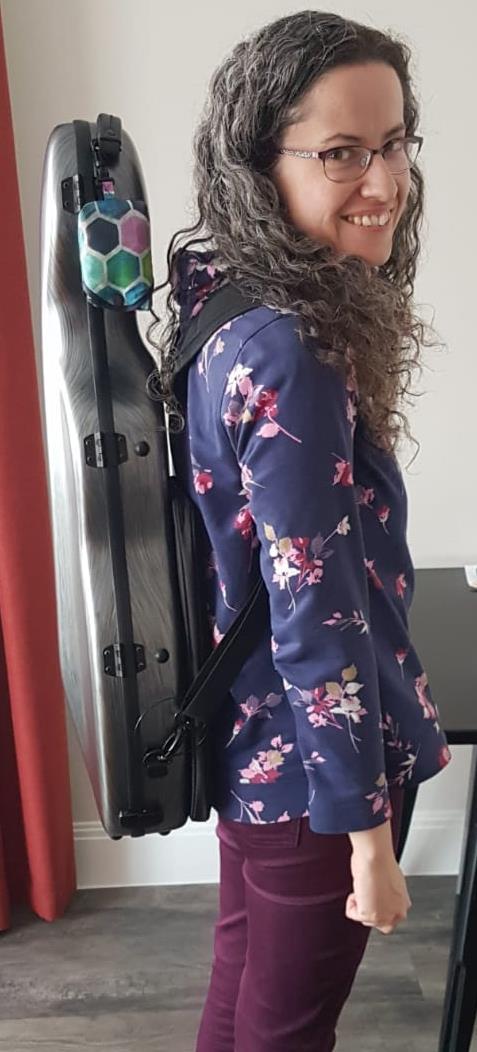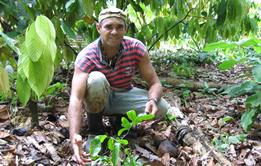Ahead of World Earth Day, violinist and low-waste living enthusiast Lucia D’Avanzo-Lewis shares some small but effective measures for string players to help reduce their impact on the environment
The calendar seems crammed with ’Hallmark Holidays’ these days: Friendship Day, Grandparents Day, even National Chocolate-Covered Cashews day (count me in!). On 22 April we are called to celebrate Earth Day, a very important date which has been observed in the US since 1970 and worldwide since 1990. On Earth Day 2016, 175 countries signed the Paris Agreement.
Dedicating a special day to increasing climate awareness is fantastic, but seeing green companies and eco activists mark the event in impressive ways can make our own small actions feel insignificant in comparison. I’m here to encourage you that small changes can make a big difference! If you know me, you’ll know one of my favourite eco quotes is this:
’We don’t need a handful of people doing zero waste perfectly. We need millions of people doing it imperfectly.’ - Anne-Marie Bonneau, The Zero Waste Chef
If we have any chance of reversing global warming then EVERY day should be Earth Day! But what can we string players be doing to help reduce our impact on the environment and help protect our ailing planet? Here are my 5 top tips for string players to live a more eco-friendly life:
1. Keep a reusable bag on/in your instrument case
Most low-waste advocates recommend keeping reusable bags in your handbag or car, ready for any situation. If you’re anything like me, you feel like a turtle without its shell when your instrument isn’t on your back! So why not attach a reusable bag to your case too, or keep one in the music pocket?

2. Go digital
Whether your students have forgotten their books again or you’ve been sent some music to prepare for your next concert, ask yourself if photocopies are necessary or whether viewing the music digitally could serve you just as well. Most print-outs are only used for a few minutes anyway! If printing is a necessity, keep a stash of scrap paper next to your printer - it’ll be just as easy to grab as a fresh piece.
When you go to watch concerts, make the most of digital tickets and programme notes too.
3. Second-hand sheet music
Most of us wouldn’t think twice about buying new when it comes to sheet music, but why not check eBay and other second-hand retailers next time you decide to expand your library? You may find some fun annotations from previous owners, and sending a few pennies someone’s way as they clear out their own collection of scores could really make their day.
This tip works both ways: treat yourself to an afternoon (OK, probably a week… or a few months!) of playing through your old sheet music and decide what could bring more joy to someone else – you may even find some duplicates! In decluttering your own library, you’ll not only be able to find your favourite pieces more easily, your old music can bring joy to others.
4. Second-hand instruments
This will sound like a no-brainer to most, especially if you’re sitting at home next to a beloved relic from the 1800s, but it’s easy to forget that pre-owned student instruments exist too. Beginners at the comprehensive school I teach at are given free instruments, all of which used to be ordered brand new.
I’ve recently taken to scouring Facebook Marketplace for instruments instead and, as young people become more and more concerned about the environment, my students have loved taking receipt of their pre-loved instruments. It also liberates the people clearing space in their cupboards, knowing the instrument they felt guilty about neglecting has gone to an enthusiastic new learner!
5. Donate your old strings
As a professional performer, I mainly change my strings due to their tone having diminished rather than because they’ve snapped. Since even a dull high-quality string will easily out-shine a low-cost beginner one, I often donate my old strings to students. It’s amazing the difference one good string can make to the sound of a student-level instrument!
If you live in the US, you may also live near a Terracycle string recycling point – find out here.
For day-to-day decisions in all areas of life, keep zero-waste champion Bea Johnson’s 5 Rs in mind. Follow these in order: Refuse, Reduce, Reuse, Recycle, Rot. If we all work together to make better choices, we can move towards a better future where music can thrive on a thriving planet.
(And if anyone wants to join me in celebrating National Chocolate-Covered Cashews day, it falls on Earth Day eve!)
Lucia D’Avanzo-Lewis is a London-based freelance violinist and teacher with a passion for low-waste living. Find her blog at EcoNotes.co.uk or find her on Facebook at Lucia’s EcoNotes.
Analysis April 2022: Seeing the wood for the trees

With the Brazilian police ramping up its efforts to combat pernambuco trafficking, what could the effects be on the international bow trade? By Peter Somerford
- 1
- 2
- 3
- 4
 Currently
reading
Currently
reading
5 top tips for string players to live a more eco-friendly life
- 6
- 7
- 8
- 9
- 10






























































No comments yet